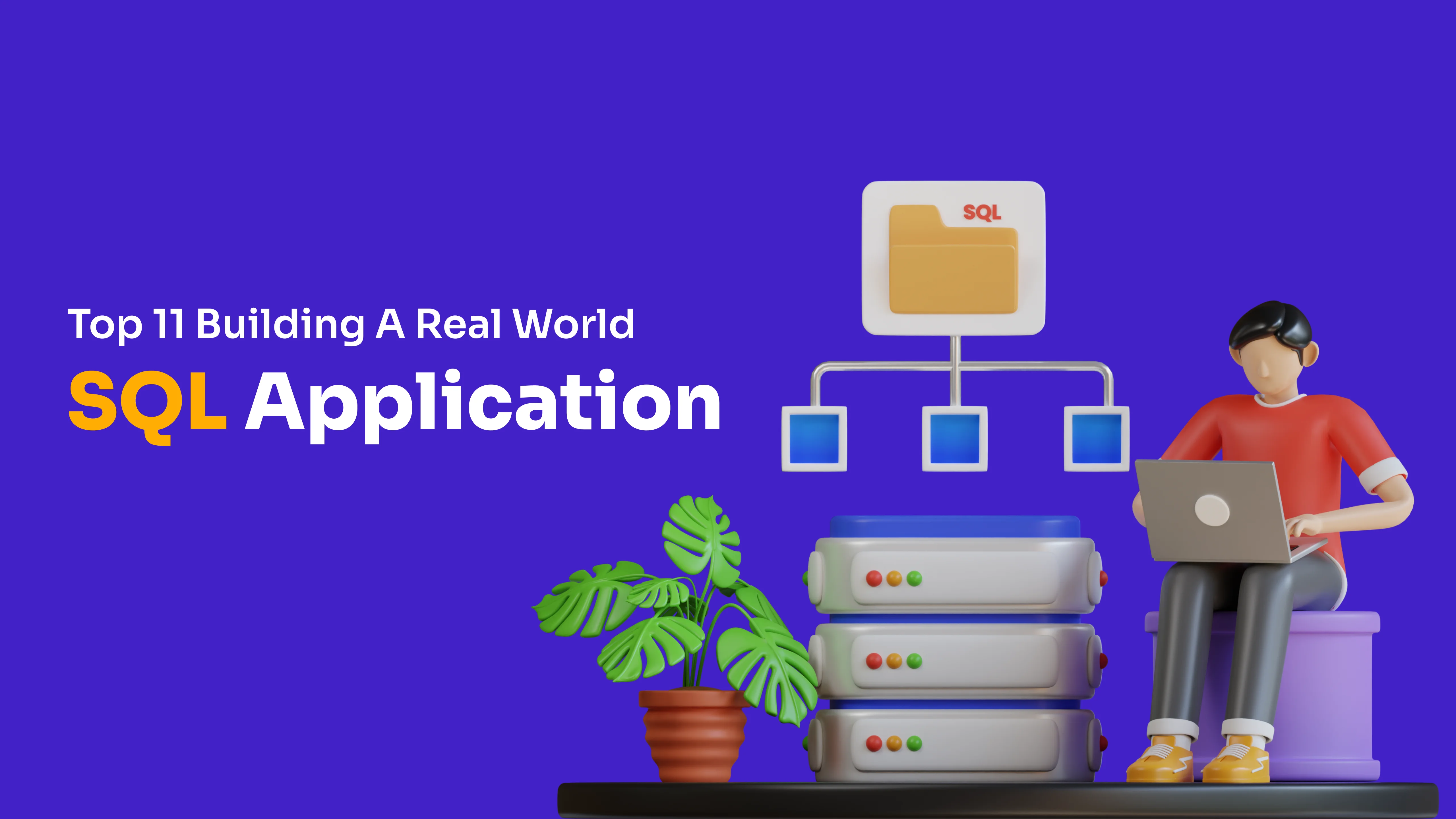
SQL is a popular program that helps in data management and manipulation. The language was developed in 1970 and used to create and manage the data. It is a declarative language, in which we need to specify what we want to do with data that has been collected, while others like Java and Python are procedural languages.
In the world of data analysis, SQL operations are ubiquitous, whether they power web operations, enterprise systems, or mobile apps. SQL is used by businesses to pierce, handle, and manipulate the data kept in their databases.
Nearly every mid to large-sized association uses SQL, including Facebook, Microsoft, LinkedIn, and Accenture. This composition provides a comprehensive companion to real-world SQL operations, covering everything from database design to deployment and conservation.
In the modern world, a large amount of data needs to be managed, stored, and processed. However, dealing with this data might be difficult and time-consuming. This is where a program language like SQL comes in handy. SQL has not only made data management easier, but also industries are enjoying its benefits.
SQL is present in almost all sectors whether it is about making a decision based on gathered data, integration of data, or customer relationship management. For the businesses to proceed smoothly, it is essential to know the power of SQL. This is the reason businesses nowadays talk about SQL.
The demand for SQL-based projects has increased in recent years due to its relational databases and data management attributes in various industries. Here are 11 real world applications that totally rely on SQL for data management.
SQL is widely used in e-commerce applications to handle product catalogs, customer information, and order processing. Its queries are executed to retrieve product details, track inventory, and manage transactions.
SQL databases are used by CRM systems to store and retrieve customer data, including contact details, interactions, and sales history. It enables businesses to enhance customer relationships and streamline sales processes.
SQL databases play a pivotal role in healthcare applications for managing patient records, appointment scheduling, and medical histories. SQL queries are used to retrieve specific patient information or generate reports.
Banking applications and financial systems depend on SQL for handling transactions, managing accounts, and ensuring data accuracy. SQL queries are used to calculate balances, generate statements, and track financial activities.
HRMS applications utilize SQL databases to store employee data, manage payroll, and track attendance. Queries are executed to retrieve information about employees, departments, and performance metrics.
Social media applications rely on SQL databases to store user profiles, posts, and interactions. It uses SQL queries to retrieve personalized content, manage connections, and analyze user engagement.
SQL databases are integral to supply chain applications for tracking inventory, managing orders, and optimizing logistics. Queries help monitor stock levels, forecast demand, and streamline the supply chain.
Telecommunication companies use SQL databases to manage subscriber data, track usage, and generate billing information. Queries are executed to calculate charges, generate invoices, and analyze usage patterns.
Systems that facilitate online reservations, such as hotel booking platforms or airline reservation systems, use SQL to store and retrieve booking information. Queries are executed to check availability and confirm reservations.
SQL databases are employed in educational applications to manage student records, course schedules, and grading information. Queries assist in generating reports on student performance and attendance.
Hotel Reservation System is a very useful system for crowded hotels that involves creating a database schema to manage reservations, rooms, guests, and other related information. You can design a database for managing hotel room reservations, customer check-ins, billing, and room availability.
Now, let’s take a look at some examples of SQL applications in brief including the ones we’ve explained above.
Let’s delve into the details of an E-commerce Platform, highlighting how SQL is crucial for its functionality.
E-commerce Platform: Managing Product Catalog and Orders
For an e-commerce platform, the database design involves creating tables to store information about products, customers, orders, and transactions. Here's a simplified schema:
Syntax:
Relationships between tables are established through foreign keys. For example, the Orders table has a foreign key (customer_id) linking it to the Customers table.
SQL queries are used to manage the product catalog and process orders. For instance, retrieving all products in stock:
Syntax:
When a customer places an order, multiple SQL statements are often executed as a transaction to ensure data consistency. For example:
Syntax:
SQL is used to retrieve information about customer orders. For example, getting details of a specific order:
Syntax:
Indexes can be applied to enhance query performance. For instance, creating an index on the product_name column:
Syntax:
Constraints ensure data integrity. For example, ensuring that the quantity in OrderItems is always a positive integer:
Syntax:
As the e-commerce platform grows, SQL scaling strategies such as sharding or replication can be implemented to handle increased data and traffic.
In this way, SQL is fundamental to managing the intricacies of an e-commerce platform, from maintaining an accurate product catalog to handling customer orders and ensuring data integrity throughout the process.
In the complicated tapestry of real-world applications, SQL emerges as the indispensable thread weaving together data integrity, performance, and security. From e-commerce dynamics to online booking precision, SQL's prowess in database design, transaction management, and scalability shines through. It isn't just a language; it's the backbone, ensuring applications stand resilient against time and demands. As technology evolves, SQL remains the reliable constant, transforming data into actionable insights and driving the seamless, secure, and efficient experiences users expect. In the symphony of software development, SQL’s melody is timeless, echoing the essence of robust and scalable application architecture.